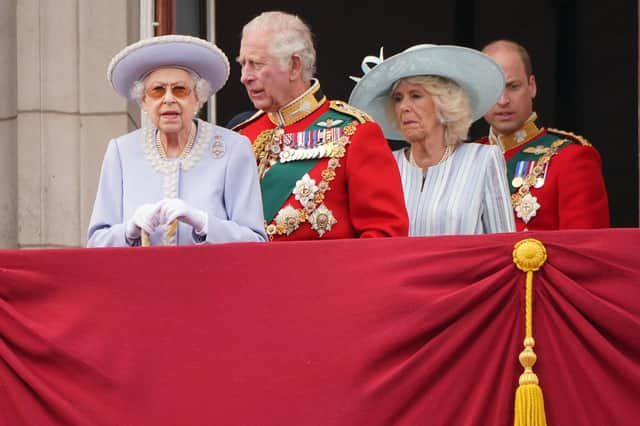Ben Lowry: The monarchy seems set to be in good hands for decades to come


The American public seemed either to lose its judgement in its assessment of the character of the main in the White House, or not to care about that character.
I say that not repeat my past criticisms of President Trump, because I know some readers do not share those objections to him, but to remark on the way American voters have tended to be cautious in their selection of the sort of person they want as their commander-in-chief.
Advertisement
Hide AdAdvertisement
Hide AdThus, while there have been many deeply flawed presidents since World War II (and indeed, perhaps anyone who reaches such an extraordinarily rarified position is by definition somewhat abnormal and flawed), most of them have seemed largely decent and sane.
American voters had been uncertain, for example, in their early view of a president who went wrong, Richard Nixon, when he first ran for that office in 1960.
The man who defeated him, John F Kennedy, like Ronald Reagan and Bill Clinton and Barack Obama later, had a personality that was easy to like.
Yet in 2016 Americans opted for Donald Trump, a man who was extraordinarily aggressive, shockingly rude and verbally cruel towards anyone who challenged him, and who was plainly emotionally turbulent. He is quite unlike anyone else who has sat in the Oval Office in living memory.
Advertisement
Hide AdAdvertisement
Hide AdI do not think that the embracing of Trump (who might well win again in 2024) means that Americans have changed so much as it reflects deep anxiety and even anger at the perceived slipping away of old, traditional, English speaking order. In the absence of such anxiety, America would not have contemplated a man of Trump’s extreme personality as president.
I say all this because in democracies voters place great store by their assessment of the character of the person who is likely to lead them.
Millions of people think Boris Johnson a rogue but millions more think him an affable and impressive personality who is well suited to leading a country.
In a monarchy, however, the public has nothing to do with who becomes head of state.
Except that they do — or could.
Advertisement
Hide AdAdvertisement
Hide AdOnly a few hundred years back England was an absolute monarchy in which the king or queen could do as they pleased. But in recent centuries their power was gradually constrained, and if it had not been they could have been overthrown.
Belfast News Letters of the late 1700s have reports of the deposing of the French king, then his beheading, a sequence of events the mere thought of which must have shaken to the core each monarch since.
Now our monarchs are powerless, and one as wise as Queen Elizabeth almost advertises the fact.
She does not even hint at her political views, lest it alienate sections of the public, let alone act on them.
Advertisement
Hide AdAdvertisement
Hide AdThe queen’s reign has been truly remarkable, but there is no need for this column to recap on that when so many other people have done so.
Her popularity is one reason why the monarchy in Britain is so secure. But the brief turn against the Queen in 1997 when Diana died was an early glimpse of how public opinion would become increasingly fickle. Now, unless a royal’s conduct is seen to be beyond reproach, they will have spells of unpopularity: Princess Anne, Prince Andrew and Fergie are all royals who have been popular and also very unpopular.
And it is an inevitability that a hereditary system will ultimately throw up a king or queen of bad character or, if not that, then one who has a personality to which people just do not warm.
And when that day comes the monarchy will be in deep trouble, unless the said king or queen can be persuaded to abdicate.
Advertisement
Hide AdAdvertisement
Hide AdHowever, I think the House of Windsor is in safe hands for decades to come.
This is as a result of what you might describe as a hereditary fluke in which several successive monarchs or monarchs in waiting of good character have emerged: George VI, Elizabeth II, Charles (will be III) and William (will be V).
People say Charles is too political and he is, but he gets away with it because he has two other qualities that the public demands in its royals — an air of decency and good character, and a demonstrable commitment to public duty.
William clearly has that too. With good fortune, the recent Windsor longevity genes will prevail for this father and son.
Ben Lowry (@BenLowry2) is News Letter editor
Advertisement
Hide AdAdvertisement
Hide Ad• Ben Lowry: Anniversary happiness and glorious June weather too
• Ben Lowry May 28: Today’s parade is a reminder that NI was denied a 100th birthday
Advertisement
Hide AdAdvertisement
Hide Ad